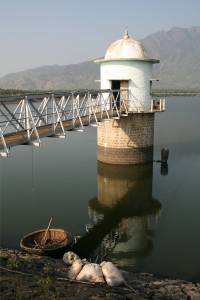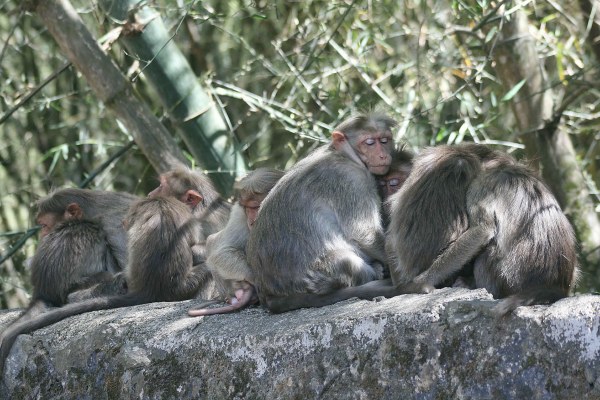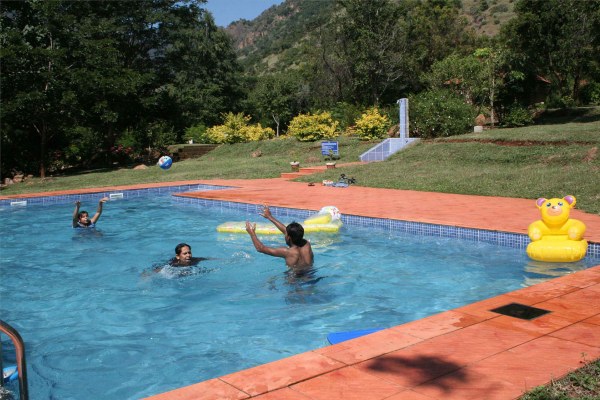 Lakeside is situated literally on the side of Kamarajar Lake in Tamil Nadu, South India. It is a man-made lake which provides drinking water for the local town of Dindigul. It is (supposedly) treated on arrival, and we certainly hope so as we often see locals washing their clothes (and themselves!) in the water, as well as the water buffalo taking a swim!
Lakeside is situated literally on the side of Kamarajar Lake in Tamil Nadu, South India. It is a man-made lake which provides drinking water for the local town of Dindigul. It is (supposedly) treated on arrival, and we certainly hope so as we often see locals washing their clothes (and themselves!) in the water, as well as the water buffalo taking a swim!
One man pays a very large amount of money each year for the fishing rights to the lake. He is responsible for keeping it stocked with fish and employing the local fishermen. There are two types of fish in the lake which are good for eating, one

Lake fish
rather larger than the other (I have seen fish of 7kg+ and that is not a fisherman’s tale!) Both kinds of fish taste very good but seem to be full of tiny bones so we only eat them when we are on our own, when we have guests we buy sea fish which are brought up overnight from Tuticorin (on the east coast of Tamil Nadu) in refrigerated containers.

Coracle
The method of fishing is traditional and probably hasn’t changed in centuries. The fishermen use coracles (some from woven beanches then waterproofed, others are sadly now made of fibreglass). They go out in the evening and lay long nets across the lake. In the morning they are out

A good catch!
again pulling them in. The fish are then landed at the pumping station on the dam (where the boats are also moored when not in use). In the summer, when the level of the lake has dropped, they often wade out with the nets during the day and then haul them in from the shore – in the same way that is often seen in Africa.
The fish are carried up the steep slope of the dam, weighed and sent by lorry to local markets. Some of the smaller fish are sent to Kerala where I believe they are made into a fish sauce. Locals can buy fish at the dam, but it there is always an official sent by the man with the rights to make sure that everything is properly recorded in his books!


The one that didn't get away!
This official also makes sure that none of the local people try to take fish from the lake. In monsoon season though, when the lake is overflowing, they are allowed to take any fish that are swept over the overspill. As David Attenborough would say ‘this is a seasonal event which they seem to be able to predict, the strongest get the best fishing stations and take their fill before the weaker move in to take the rest’. (I saw that on a programme he narrated about grizzly bears and the scenes of jostling Indians vying for fish are amazingly similar!)

Coracle and fishing nets by the pumping station












